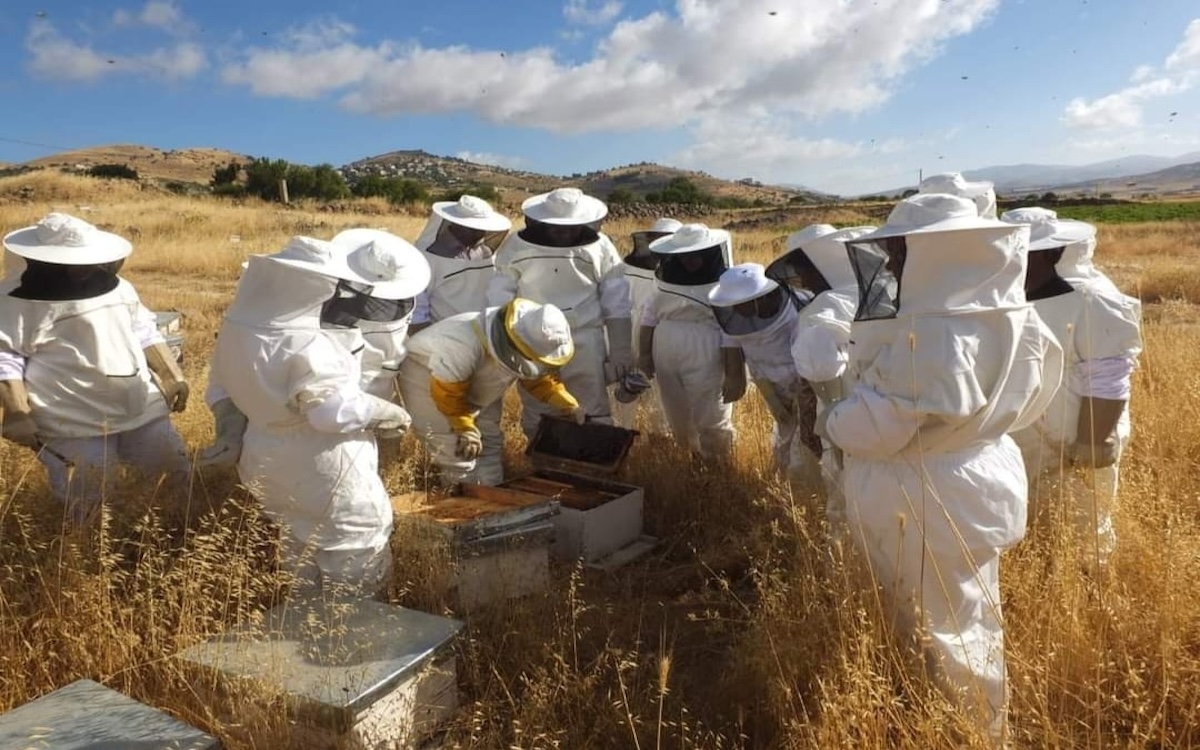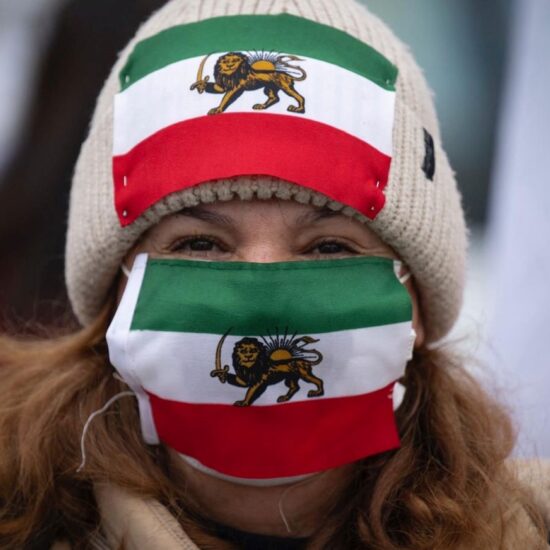
The presence of women in various sectors of life in Lebanon is rapidly growing. Recently, women have ventured into beekeeping and honey production, fields that have traditionally been dominated by men.
Amidst Lebanon’s political and economic turmoil, the agro-food sector lacks significant assistance from the government. However, private international and national organizations have stepped in to provide beekeeping training programs to support the industry whilst allowing women to establish and maintain feasible and sustainable small businesses.
Over the past three years, there has been a rise in beekeeping, both in commercial and amateur settings, as reported by Nahida Reslan Salha who serves as the chair of a cooperative in the upper Metn region and strives to promote sustainable beekeeping efforts. Salha’s efforts include educating local communities about reducing monocultures and pesticides, building capacity for women and others who are interested in beekeeping, and aiding in communication among beekeepers. Additionally, Salha emphasizes the detrimental impacts that pesticide-treated crops have on bees and advocates for increased awareness and adoption of more sustainable agricultural practices.
The beekeeping sector in Lebanon is suffering from several difficulties that have turned working in it into a high-cost risk for small beekeepers. The climate change witnessed by Lebanon and the world and the neglect of this sector, which supports thousands of families, have contributed mainly to the marginalization of the sector.
According to a spokesperson from the Lebanese Ministry of Agriculture who wished to remain anonymous, the ministry collaborates with the Lebanese Research Agriculture Institute with various organizations, such as the United Nations Development Programme and USAID, to offer beekeepers aid in enhancing their operations. Beekeepers can depend on the schemes for guidance in equipment and production.
After undergoing beekeeping training and receiving the necessary gear with support from organizations such as UNDP, some women have developed an interest in the field. This inclination has enabled them to set up their establishments, signifying a positive shift towards financial empowerment.
Many might assume that women can’t handle the physical demands of beekeeping. However, Ramona Halabi, a former teacher who turned to beekeeping in the Bekaa region, proves that assumption wrong. “In the world of beekeeping, women have to put in more effort to make their presence and work known. However, there is hope as more women come forward to share their experiences, making it easier for us to gain credibility and respect,” Halabi told NOW.
As the first woman from Lebanon to hold a position on the Union of Arab Beekeepers’ board, Faten Al Masri told NOW that she began beekeeping as a hobby. With a desire to be closer to nature, she started with two hives. Today, Al Masri boasts an impressive collection of 500 hives.
For the past three years, Al Masri has relied on her prosperous enterprise to make a living. During this time, she has noticed a significant rise in the number of women engaged in beekeeping. Al Masri, who offers workshops on beekeeping, has observed a surge in demand for her courses. A substantial number of her students have since started their own successful honey ventures.
Al Masri empathized that beekeeping is more than just extracting honey and selling it. In addition to beeswax, propolis, and royal jelly, the harvest can also be used to make organic soap and beauty products, all of which are extracted and produced through a delicate process
“Working in the beekeeping sector requires accurate observation, the smell of the hive may indicate the presence of a disease, and anything strange we notice should not be neglected,” Al Masri added.
Lebanese beekeepers, as stated by those contacted by NOW, find their country to be a prime location for beekeeping, offering many habitats suitable for pollinators. Lebanon’s bees gather nectar from a diverse range of plants, such as sunflowers, citrus crops, cotton, and eucalyptus. Providing a spontaneous assortment of sources, Lebanon’s honey is recognized as a multi-flowered variety boasting a highly flavored, luscious taste.
Mayada Barakat Hayik and her daughter Dima Barakat have managed to turn their six hives into 100 hives and while they are increasingly becoming popular in the Koura region for their delicious and raw honey, they are now working on launching their online pages “honey land” to increase their online presence and potentially export abroad.
Additionally, a major goal for them is to integrate cosmetic products infused with honey and trade other beekeeping-related products.
“Throughout the duration of our training, we realized that bees serve a vital purpose beyond their role in honey creation,” Barakat told NOW.
If fostered correctly, beekeeping endeavors have the potential to significantly enhance one’s earnings through a variety of revenue streams- including the production and sale of premium goods like royal jelly, priced at approximately 3000 dollars per kilogram- although this demands valuable industry knowledge as well as an understanding of how to properly market Queen bees, according to Barakat Hayik.
Rodayna Raydan is a Lebanese-British journalist. You can follow her on Twitter @Rodayna_462.








